
View this page at 1024x768 This page last updated January 2007. This is a VERY vague account of the whaling operation at Port Alexander.
Please contact me for comment or if you can help with extra information. |
Sandstone cliffs (134ft high) form the Eastern extremity of Port Alexander. This port forms a commodious harbour where vessels may lie in perfect safety at all seasons of the year.
|
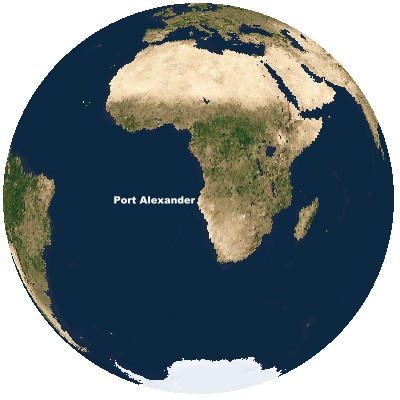
|
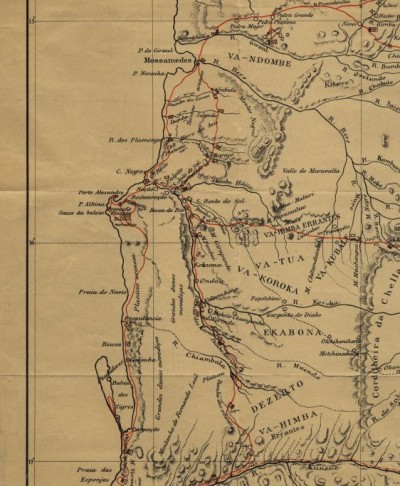
|
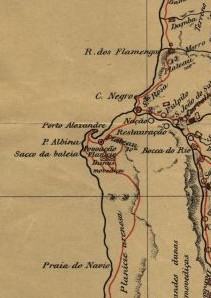 SPACE SPACE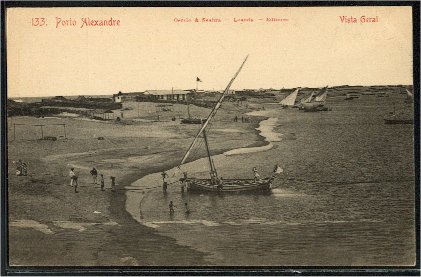
|
|
The log of the 'Sound of Jura' tells us that during the 1912-13 trip to South Georgia, she had intended to call at Port Alexander, but for some reason went to Mossamedes instead albeit only briefly. The 'Crew List & Account of Voyage' tells us that she didn't call here on the 1916-17 voyage to South Georgia, so it is unclear just how long they operated a whaling station at Port Alexander.
|
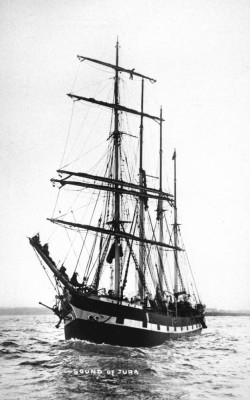
|
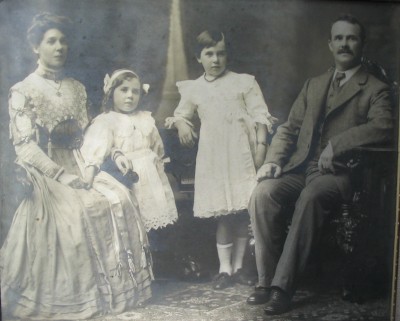
From L to R - Harriet, Queenie, Hetty & George. |
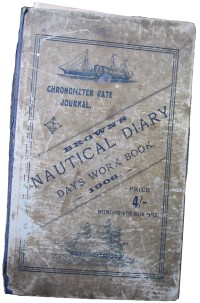
|
|
ALSO SEE - Hetty Rochester's diary at Prince Olaf Harbour & Capetown
Abstract of Voyages during 1915 - 16.
SHIP 'Sound Of Jura' - FROM Penarth Wales to Port Alexander (Portuguese West Africa) - LEFT May 22nd 1915 - ARRIVED August 16th 1915 - DAYS - 86 - REMARKS - Fine weather passage. Sun 15th
Mon 16th
Tue 17th
18th
-------------------- 2nd September 1915 Went out whale hunting. 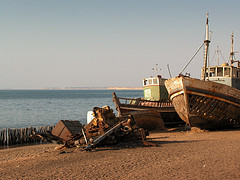 -- --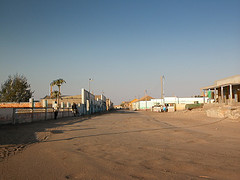 -- --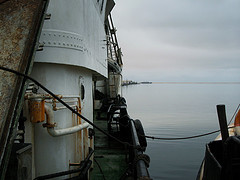
Tombua 2006------------------------Tombua 2006------------------------------Tombua 2006 My Experience of Whale-Hunting - 7/9/1915 'On the 2nd September 1915 I left Port Alexander to go whale - hunting on one of the world's finest whaling boats. We did not reach the whaling ground until next morning, when at 8am I was awakened by a sharp cry of 'WHALE' from the lookout tub at the mast - head. Instantly I jumped out of my bunk and performing a hasty toilet went up on to the bridge. Half an hour later another cry sounded 'PORT BOW'. Almost instantaneously the boat swung round and the hunt began. We soon saw two Fin whales blowing about a quarter of a mile away & at once steamed in their direction. As they came to the surface to breathe for the 4th time, we came within ten yards shooting distance of them, but before we could get any nearer, the two whales dived beneath the surface of the water & swam rapidly away. Ten minutes later they were reported to be a quarter of a mile away on the starboard side of the boat. Again we chased them and again they dived before we could get within shooting distance of them. When this happened a few more times, the crew came to the conclusion that the whales had been chased before & were too cute to be easily caught. For eight hours we chased those two whales & at the end of that time we saw the last of them; and without them even letting us get near enough to try to shoot them. The gunner had been standing at the gun all the time, and no-one had left the bridge, so that by this time we were all disgusted with whales and were preparing to go below for coffee when again the cry of 'WHALE' sounded from the look-out. We all became wildly excited again, and standing on the bridge-seat to see more clearly, we took hold of the awning wire which snapped, and three of us narrowly escaped being thrown into the sea. When we recovered our balance we looked again into the water & saw a large blue whale right alongside. At that instant a loud report rang out, and as the smoke cleared away we looked again, expecting to see the whale struggling in the water, but it had been too quick, and had dived right under the bottom of the boat, and thus escaped death. The harpoon was at once hauled in & the crew set to work to reload the gun. A bag of powder and some gun cotton were placed in it, and then it was swung round and a large iron harpoon to which was attached a long rope, was fixed in the mouth of the gun. In the head of the harpoon a time-fuse was placed and the gun was ready once more. The effect of the time fuse was, I learnt, to explode inside the whale & shatter it internally. By this time another whale was in the vicinity, & the gunner, angry with missing the whale the time before, was determined to shoot this one. We chased it for about ten minutes and then it suddenly appeared right alongside, the same as the former one had done. But this time the gunner was ready & he immediately fired. When the smoke cleared away we saw the whale lying dead on the water. Blood was pouring from a huge hole made by the harpoon, which had gone right through it, and everything was splashed with red. The whale was hauled alongside and a pipe inserted in its stomach. It was then filled with air so as to make it float, and then secured on the tail with an iron chain. Another whale was now sighted, and as the sun had gone down it was not very wary & we soon approached it (whales come to the surface at sundown to play). It was shot within half an hour of the other one, but it was not killed outright, and it lashed about in the water for a few minutes in a terrible fury. Then as it felt its strength deserting it, it made one last effort to avoid death, and stood right up on its tail, with its huge head showing above the surface of the water, and its mouth wide open. It remained there for about ten seconds and then fell back dead. It was hauled alongside and it proved to be a Fin whale. After it had been treated in the same manner as the former one, we proceeded towards port, which we reached the next morning safely'.
Arose at 3am & went in whaling boat 'COJ' to Mossamedes. Was very unwell (not seasick 19/3/1917). Arrived there at 9.30am & went ashore. Got basket of roses etc. from interior (some). Walked to Fort & native compound & then had breakfast with Senor & Senora Radich. Then visited Mr. & Mrs. Stilwell at the Cable House. Looked through garden & saw banana trees, fig trees, date palms, guava trees, heart of India trees, Potanga cherry trees, pepper trees, maize (Indian corn) & their fruit growing. Tasted of them. Had tea and then returned to boat. Saw bullock wagons & curious natives from interior. Took some snapshots. Saw tomatoes growing in open air. Interior where rose grow is only about 10 miles inland. Saw Church & Military hospital, also many so-called soldiers. (Worse than the very rawest of English recruits.) Date Palms - male tree bears no fruit but is larger than female. Heart of India - Bears fruit of which the interior is like cotton wool soaked in mint-water. Pepper Corn - bears pepper corn. 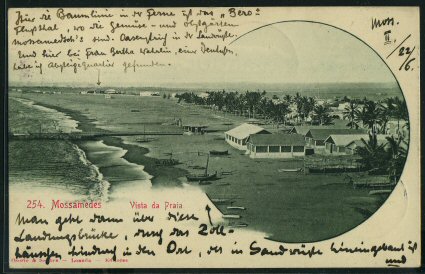
Mossamedes - Click for larger image Sat 13th October
------------------ 15th Oct
|
|
Maritime History Archive - University of Newfoundland Mrs Rhona Casson - grandaughter of Capt. George Rochester |